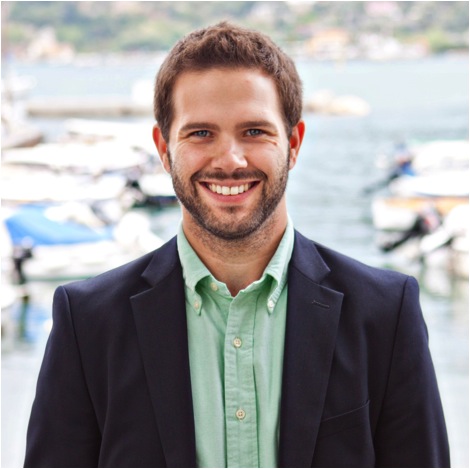 Wesley Rothman's poems and criticism have appeared or are forthcoming in 3 2 Poems, Crab Orchard Review, Drunken Boat, New England Review, Prairie Schooner, Southeast Review, Vinyl, and The White Review, among others. He serves on the board of directors of Salamander, and is an associate editor for Tupelo Quarterly. Pushcart nominee and recipient of a fellowship from the Vermont Studio Center grant, Rothman teaches writing and cultural literatures throughout Boston.
Wesley Rothman's poems and criticism have appeared or are forthcoming in 3 2 Poems, Crab Orchard Review, Drunken Boat, New England Review, Prairie Schooner, Southeast Review, Vinyl, and The White Review, among others. He serves on the board of directors of Salamander, and is an associate editor for Tupelo Quarterly. Pushcart nominee and recipient of a fellowship from the Vermont Studio Center grant, Rothman teaches writing and cultural literatures throughout Boston.His poem, "Self-Portrait as High Priestess of Soul," appeared in Issue Sixty of The Collagist.
Here, he speaks with interviewer Christina Oddo about Nina Simone, the soul as an observer and musician of time, and the performer/audience space as chapel.
Diction, sound, and repetition point to a musicality that supports the content of this work (i.e. religion in hymns, spirituality of song).“Relentless rhythm marches through history’s riot,” “slick spirit air,” “Off-tone between-tone,” are only a few examples. Did the content influence the stylistic choices, or vice versa?
A little bit of both. I think the content improvised with, collaborated with Nina Simone's soulful performance style—a holistically rhythmic and fierce experience. It's one thing to listen to her studio records, but a very different, possibly more astounding experience to listen to and watch her live performances. She, like almost nobody I've seen elsewhere, truly infiltrated her audience, plugged into them in between songs as well as through sung riffs of her own music—no two performances of the same song are very similar. She used silence and pauses and her physical presence so deliberately yet I'm sure it was unconscious, natural, her soul. So, roundaboutly, her smoothness, improvisation, deliberation, and naturalness surged me through making this poem. And I was reading a lot of Terrance Hayes at the time (still am), so a certain word/sound association fueled what came of this piece.
There is a power that grows from recycling words in the same stream of breath, ultimately twisting or diverting meanings in new directions. These twists create the foundation for a new understanding of time, more explicitly revealed in the third stanza. What relationship, for you as a writer most importantly, exists between the soul and time?
I don't know how explicitly a new understanding comes through in stanza three, but there's definitely a relationship that I think was on my mind. In this context, the relationship is a kind of natural synchronicity that arises between the soul and time (time as in pace or rhythm of music). I think Nina had and has a profound sense of rhythm, not just between her vocals and the musicians, but a sense of rhythm that overlays and connects the time when she's singing to when she's not. Even when she simply talks with an audience, she enacts a pattern, rhythm, cadence, which involves silence, that invites her audience to sway their knees, feel in time with the experience. Beyond this poem, I think the soul is an observer and musician of time. Seconds, minutes, and rhythm are silent, until the soul aligns with them to instigate a kind of harmonic action. I think this synchronicity happens for poets when they come into that existing rhythm or time of a (potential) poem.
Religion can be seen here under the broader scope and description of smoke and ash, and of the soul. What specific role did religion unravel into through this work, and how?
I suppose because this is somewhat a likeness of Nina, religion unraveled into a faithfulness to her soul, both musically and extra-musically. In my mind I think it also unraveled into a veneration of musical artists, knowing the club or theatre or performer/audience space as chapel, as holy. It reflects a faith in honest music, and a holy ceremony of internalizing such sacred sermons. Maybe it reflects a grasping for preservation of the soul, of Nina's soul and her Soul.
What are you currently reading?
I'm reading, again, Tyehimba Jess's leadbelly, Ralph Ellison's Shadow and Act, Ruth Ellen Kocher's forthcoming Ending in Planes, and continually revisiting Jake Adam York's Abide and Natalie Diaz’s When My Brother Was an Aztec. And I recently finished Junot Diaz’s Drown.
What are you currently writing?
I've been wrenching my manuscript, Subwoofer, lately, and writing some new pieces, but as long as I've got the manuscript in the shop, new pieces seem residual or revisional. My most recent draft puzzles the need for my neighbor to get in his Jetta—which must have pristine woofers—at 2:30am and blare metal or hard hip-hop whilst parked—something I usually wouldn't mind, except for the early morning/late night part.
